|
|
|
|
|
|
|
|
No Arctic science events are planned for today. |
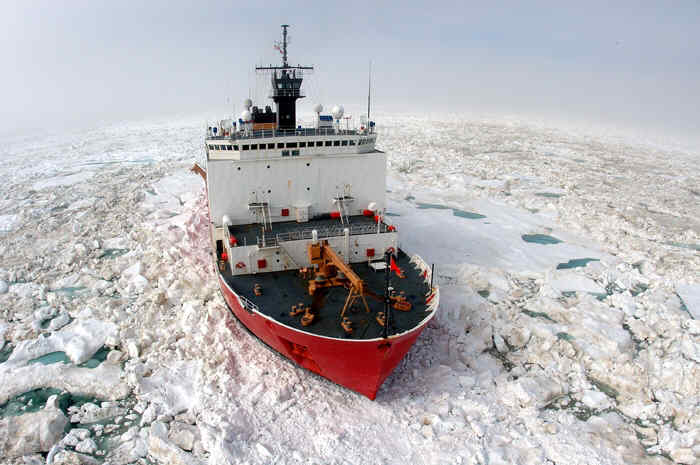 Icebreaker Healy Prepares for Months-Long Arctic Mission. Icebreaker Healy Prepares for Months-Long Arctic Mission. The U.S. Coast Guard Cutter Healy, the United States' most advanced polar icebreaker, based in Seattle, is preparing to head out on its annual summer research mission to the Arctic. But first, crew members need to test the ship's systems and run through drills, before plotting a course for one of the world's most challenging and remote environments. The Healy is on a shakedown cruise in Puget Sound this week. It's an opportunity for the crew to make sure its systems and procedures are running smoothly at the outset of a research mission that, in past years, has extended beyond four months. King5
The Global Seed Vault that is Supposed to Help Protect Us from Natural Disasters Just Suffered a Natural Disaster. Climate change, it appears, can get to us everywhere. Even in our most secure locations. In a disheartening bit of news, the Svalbard Global Seed Vault - a secure facility that holds duplicates of plant seeds from around the world as a last resort in case a global catastrophe - has itself started to succumb to the effects of climate change. The vault, which is located on the Norwegian island of Spitsbergen only about 800 miles from the North Pole, recently flooded after abnormally warm winter temperatures caused meltwater to breach the entrance tunnel, according to The Guardian. Food and Wine
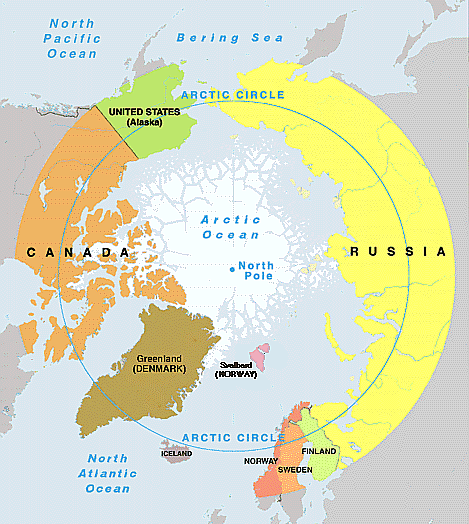 UN Launches "Year of Polar Prediction" for Arctic, Antarctic Weather-Watching. UN Launches "Year of Polar Prediction" for Arctic, Antarctic Weather-Watching. The United Nations weather agency has kicked off of a two-year international effort "to close gaps in polar forecasting capacity and to improve future environmental safety at the farthest reaches of the planet." The World Meteorological Organization has launched the Year of Polar Prediction, which will aim to improve predictions of weather, climate and ice conditions in the Arctic and Antarctic. "Warming Arctic air masses and declining sea ice are believed to affect ocean circulation and the jet stream, and are potentially linked to extreme phenomena such as cold spell, heat waves and droughts in the northern hemisphere," said WMO Secretary-General Petteri Taalas in a UN news release about the launch. Nunatsiaq Online
New Model Helps Predict Regional and Seasonal Sea Ice Extent. Scientists have developed a new method to forecast the extent of sea ice in some regions of the Arctic up to 11 months in advance. The method, which incorporates information about ocean temperatures and focuses on regions rather than the entire Arctic Sea, could help in the planning of activities ranging from shipping to oil and gas extraction, fishing and tourism. The model improves on previous methods capable of predicting the ice over the entire Arctic Sea up to six months in advance. The new approach, detailed in a study published this week in the journal Geophysical Research Letters, was developed by an international team including researchers from Princeton University, the National Oceanic and Atmospheric Administration's Geophysical Fluid Dynamics Laboratory and the French National Center for Scientific Research. Phys.org
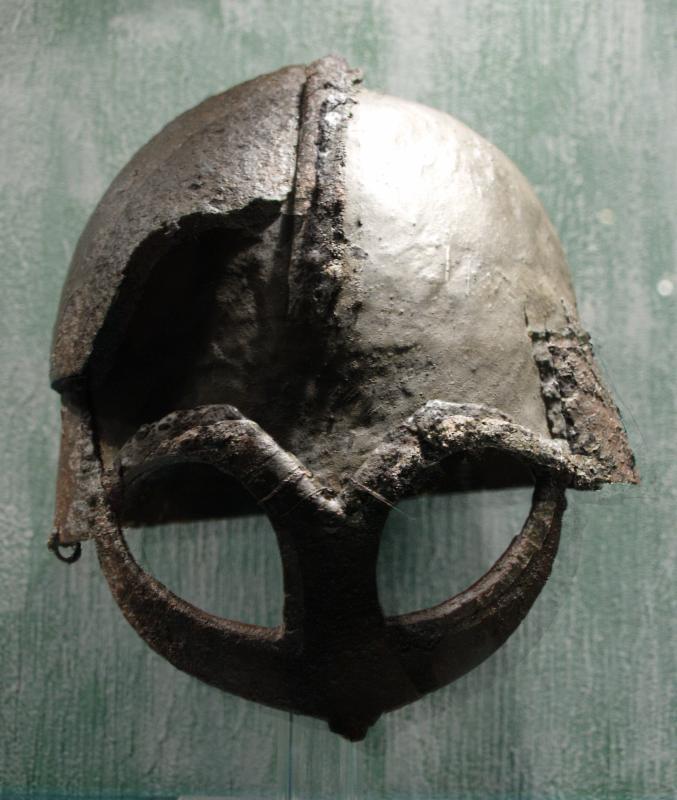 Coring Arctic Lakes to Study Vikings. Coring Arctic Lakes to Study Vikings. Billy D'Andrea, a Lamont-Doherty Earth Observatory paleoclimatologist and Center for Climate and Life Fellow is currently doing fieldwork in Norway's Lofoten Islands. He's interested in the natural factors that may have influenced the growth of northern agriculture and rise of violent Viking chieftains during the Iron Age, ca. 500 BC to 1100 AD. The Lofoten Islands-located above the Arctic Circle-were marginal for farming, so inhabitants were probably susceptible to small temperature swings, as well as changes in sea level (two to three meters higher in the Iron Age than today). In this area, powerful Viking rulers and their predecessors left behind hundreds of dwellings, boathouses, and other structures. D'Andrea and his colleague, Nicholas Balascio, want to understand how the Vikings influenced the land, and vice versa, as their culture took hold, and learn why Viking chiefdoms collapsed. Phys.org
Research in Russia Challenges Widely Held Understanding of Past Climate History. Things are heating up in Russia. UNLV Geoscience Ph.D. student Jonathan Baker has found evidence that shows nearly continuous warming from the end of the last Ice Age to the present in the Ural Mountains in central Russia. The research, which was published today in top geoscience journal Nature Geoscience, shows continual warming over the past 11,000 years, contradicting the current belief that northern hemisphere temperatures peaked 6,000 to 8,000 years ago and cooled until the pre-Industrial period. Phys.org
|
|
Future Events
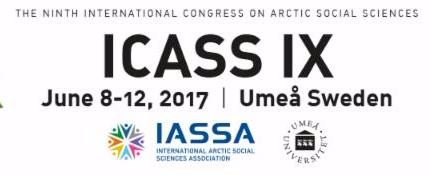 Ninth International Congress of Arctic Social Sciences: People and Places (ICASS IX), June 8-12, 2017 (Umea, Sweden). ICASS IX's theme is People & Place. Research on social sciences and humanities have a great responsibility to address the challenges for sustainable development in the Arctic, with a specific focus on the many different parts of the Arctic and the people that live there. The multiple Arctics have lately been addressed by many policy makers and researchers. The purpose is often to counteract the stereotypic understanding of the Arctic too often represented by icebergs and polar bears. A focus on people and place highlights the many variances across the region in terms of climate, political systems, demography, infrastructure, history, languages, legal systems, land and water resources etc. Ninth International Congress of Arctic Social Sciences: People and Places (ICASS IX), June 8-12, 2017 (Umea, Sweden). ICASS IX's theme is People & Place. Research on social sciences and humanities have a great responsibility to address the challenges for sustainable development in the Arctic, with a specific focus on the many different parts of the Arctic and the people that live there. The multiple Arctics have lately been addressed by many policy makers and researchers. The purpose is often to counteract the stereotypic understanding of the Arctic too often represented by icebergs and polar bears. A focus on people and place highlights the many variances across the region in terms of climate, political systems, demography, infrastructure, history, languages, legal systems, land and water resources etc.
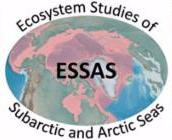 2017 ESSAS Open Science Meeting on Subarctic and Arctic Science, June 11-15, 2017 (Tromsø, Norway). 2017 ESSAS Open Science Meeting on Subarctic and Arctic Science, June 11-15, 2017 (Tromsø, Norway). This 3rd Open Science Meeting (OSM) is intended to attract an interdisciplinary group of scholars who will be prepared to discuss their research in the Subarctic, in both the North Atlantic and the North Pacific, and the Arctic Ocean. The title of the OSM is Moving in, out and across the Subarctic and Arctic marine ecosystems: shifting boundaries of water, ice, flora, fauna, people and institutions. It will document the changes that have occurred, the processes that led to these changes, and how future changes are likely to further affect these marine ecosystems. It will also to consider the people who depend upon these ecosystems and how they may be able to cope with the changes in the ecosystem goods and services that they derive from these ecosystems. These include the availability of subsistence foods and the opportunity for commercial fishing. Economic and societal pressures on coastal communities and nations will be sought in relation with the ecosystem changes. To put the present day in a longer perspective, the conference will include a session on the paleoecology of people in Subarctic and Arctic regions that were forced to adjust to the changing temperature and sea-ice conditions in the past.
The Wilson Center-Arctic Circle Forum: The United States and Russia in the Arctic, June 21-22, 2017 (Washington, DC USA). In light of recent world media attention towards Russia and the United States, the Arctic Circle and the Wilson Center will host a Forum on the two countries' complicated yet inherently linked role and relationship in the Arctic. The future of the Arctic will be greatly influenced by the actions of the United States and Russia. What are their policies, their plans and their relations with other states in the Arctic and the Asian and European countries seeking an increasing role in the Arctic? High-level representatives, policymakers and experts will gather in the Ronald Reagan Building in Washington, DC, June 21, to address these questions and challenges. This event is co-hosted by Wilson Center and Arctic.
The 2nd Asian Conference on Permafrost, July 2-6, 2017 (Sapporo, Japan). Delegates will participate in state-of-the-art oral and poster presentations in the modern city of Sapporo (host of the 1972 Winter Olympics). Field trips will visit marginal and extrazonal mountain permafrost sites that support unique geo-eco-hydrological features. All aspects of frozen ground research will be covered, from needle ice to deep permafrost, from frozen ground engineering in cities to permafrost on volcanoes, and from links between frozen ground and ancient cultures to present-day outreach. Plan now to enjoy science and engineering, excellent food, and unique field trips in Sapporo.
Co-hosted by U.S. National/Naval Ice Center (NIC) and the U.S. Arctic Research Commission (USARC). A biennial symposium originating in 2001 that focuses on U. S. naval operations and national strategic issues in an "ice-free Arctic." This symposium brings together nationally and internationally recognized experts on Arctic observations, climate change, and maritime operations. Confirmed speakers include USCG Commandant Paul Zukunft
and Alaska's Congressman Don Young.
As the Symposium is organized jointly by two leading Research Institutes of Russian Academy of Science - Institute of Water Problems and Melnikov Permafrost Institute, particularly the contributions on following research topics are welcome:
- Observational evidences of change in coupled permafrost-hydrology system.
- Present state and future projections of local, regional and pan-Arctic hydrology.
- Modeling studies representing landscape evolution, dynamics of water storages and permafrost degradation.
- Impacts of permafrost hydrology changes on local communities.
VII International Conference on Cryopedology, August 21-25, 2017 (Yaktsk, Russia). The conference will be hosted by the Institute for Biological Problems of the Cryolithozone of the Siberian Branch of the Russian Academy of Sciences (SB RAS). Plenary reports will be organized in the hall of the Academy of Sciences of the Sakha (Yakutia) Republic. The official languages of the conference are English and Russian (with translation). All technical facilities (projectors, computers, video sets) will be available during the conference for presentation of papers. Additional information will be available soon. See the Facebook page here.
 2017 University of the Arctic Rectors' Forum and Conference, August 27-29, 2017 (Aberdeen, Scotland). This conference will also consider how northern scholarship can add to discussions on the North into broader terrains of intellectual engagement. In so doing, it will challenge dominant paradigms of research in both the natural and the social sciences, above all by calling into question the very separation of the world of nature from that of human society which underwrites the distinction between these two branches of scientific inquiry. In its place the conference will seek to forge a new practice of interdisciplinary research, done in collaboration with northern residents and on their terms, which recognizes that every discipline is itself an ongoing conversation, or a way of knowing, rather than a compartment within an overarching, hierarchically organized system of knowledge. Conversations from the North will, then, help to generate a science that is more open-ended, responsive to environmental variation and respectful of the wisdom of inhabitants. 2017 University of the Arctic Rectors' Forum and Conference, August 27-29, 2017 (Aberdeen, Scotland). This conference will also consider how northern scholarship can add to discussions on the North into broader terrains of intellectual engagement. In so doing, it will challenge dominant paradigms of research in both the natural and the social sciences, above all by calling into question the very separation of the world of nature from that of human society which underwrites the distinction between these two branches of scientific inquiry. In its place the conference will seek to forge a new practice of interdisciplinary research, done in collaboration with northern residents and on their terms, which recognizes that every discipline is itself an ongoing conversation, or a way of knowing, rather than a compartment within an overarching, hierarchically organized system of knowledge. Conversations from the North will, then, help to generate a science that is more open-ended, responsive to environmental variation and respectful of the wisdom of inhabitants.
- Small and off-grid community energy solutions
- Oil and gas development
- Renewable energy
- Regulation and Financing
- Transportation and transmission
The AES is a multi-disciplinary event expected to draw several hundred industry officials, scientists, academics, policy makers, energy professionals and community leaders together to collaborate and share leading approaches on Arctic energy issues.
2017 Arctic Circle Assembly, October 13-15, 2017 (Reykjavik, Iceland). The annual Arctic Circle Assembly is the largest annual international gathering on the Arctic, attended by more than 2000 participants from 50 countries. The Assembly is held every October at the Harpa Conference Center and Concert Hall and is attended by heads of states and governments, ministers, members of parliaments, officials, experts, scientists, entrepreneurs, business leaders, indigenous representatives, environmentalists, students, activists and others from the growing international community of partners and participants interested in the future of the Arctic.
 Polar Law Symposium 2017 and Rovaniemi Arctic Spirit, November 13-16, 2017 (Rovaniemi, Finland). The purpose of the Polar Law Symposium is to examine, in detail, the implications of the challenges faced by the Polar Regions for international law and policy and to make recommendations on appropriate actions by states, policy makers and other international actors to respond to these emerging and re-emerging challenges. The Rovaniemi Arctic Spirit Conference is integrated with the Polar Law Symposium, which will be organized by the Northern Institute for Environmental and Minority Law at the Arctic Center of the University of Lapland. Polar Law Symposium 2017 and Rovaniemi Arctic Spirit, November 13-16, 2017 (Rovaniemi, Finland). The purpose of the Polar Law Symposium is to examine, in detail, the implications of the challenges faced by the Polar Regions for international law and policy and to make recommendations on appropriate actions by states, policy makers and other international actors to respond to these emerging and re-emerging challenges. The Rovaniemi Arctic Spirit Conference is integrated with the Polar Law Symposium, which will be organized by the Northern Institute for Environmental and Minority Law at the Arctic Center of the University of Lapland.
ISAR-5 Fifth International Symposium on Arctic Research, January 15-18, 2017 (Tokyo, Japan). The fifth ISAR has been planned at the recommendation of the science steering committee of ISAR-4, which was held in Toyama, Japan in April 2015. The fifth ISAR will be devoted to discussions on environmental changes in the Arctic and their regional and global implications, to seek additional international scientific collaboration in this area by gathering, synthesizing and sharing information related to these changes occurring in the Arctic. Special emphasis will be placed on the fields of the social sciences and humanities, which were not included in the previous ISARs. ISAR-5 will consist of general sessions and special sessions. The general sessions will address the following topics: atmosphere; ocean and sea ice; rivers, lakes, permafrost, and snow cover; ice sheets, glaciers, and ice cores; terrestrial ecosystems; marine ecosystems; geospace; policies and economy; and social and cultural dimensions. Special sessions will be solicited on cross-cutting themes.
 POLAR 2018, June 15-27, 2018 (Davos, Switzerland). POLAR2018 is a joint event from the Scientific Committee on Antarctic Research (SCAR) and the International Arctic Science Committee (IASC). The SCAR meetings, the ASSW and the Open Science Conference will be hosted by the Swiss Federal Institute for Forest, Snow and Landscape Research WSL under the patronage of the Swiss Committee on Polar and High Altitude Research. The WSL Institute for Snow and Avalanche Research SLF is organizing POLAR2018. POLAR 2018, June 15-27, 2018 (Davos, Switzerland). POLAR2018 is a joint event from the Scientific Committee on Antarctic Research (SCAR) and the International Arctic Science Committee (IASC). The SCAR meetings, the ASSW and the Open Science Conference will be hosted by the Swiss Federal Institute for Forest, Snow and Landscape Research WSL under the patronage of the Swiss Committee on Polar and High Altitude Research. The WSL Institute for Snow and Avalanche Research SLF is organizing POLAR2018.
|
|

  
4350 N. Fairfax Drive, Suite 510
Arlington, VA 22203, USA
External links in this publication, and on the USARC's World Wide Web site ( www.arctic.gov) do not constitute endorsement by the US Arctic Research Commission of external Web sites or the information, products or services contained therein. For other than authorized activities, the USARC does not exercise any editorial control over the information you may find at these locations. These links are provided consistent with the stated purpose of this newsletter and the USARC Web site.
|
|
|
|
|
|
|
|
|